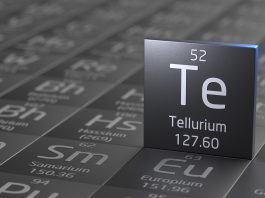The US has announced it will finance over $10m to reinforce domestic supplies of critical minerals and materials.
Funded via the Department of Energy (DOE), the $10.2m funding will support four innovative projects aimed at developing cost-effective and environmentally sustainable methods for producing and refining critical minerals and materials within the United States.
These minerals and materials are essential for manufacturing clean energy technologies, including solar panels, wind turbines, electric vehicles, and hydrogen fuel cells—key components in achieving climate goals.
Enhancing domestic supply chains
The demand for critical minerals and materials is expected to rise sharply as the US accelerates its transition to clean energy.
Currently, the US depends heavily on foreign sources for these essential materials. According to the US Geological Survey, more than 95% of the nation’s rare earth elements and over 50% of most critical minerals are imported, with at least 12 of these minerals exclusively sourced from abroad.
This dependency poses a significant risk to the country’s energy security and economic stability.
In response, the DOE’s ‘Critical Material Innovation, Efficiency, and Alternatives’ funding opportunity announcement (FOA) will allocate up to $150m across multiple project rounds.
These projects will focus on creating a secure and sustainable domestic supply chain by utilising recycled materials, mine and industrial waste, and ore deposits found within the US.
The first four projects selected for negotiation are particularly focused on developing alternatives and substitutes for critical minerals and materials.
Pioneering projects across the US
The four selected projects represent cutting-edge advancements in critical minerals and materials:
- Idaho National Laboratory: This project aims to create a fully domestic, decarbonised pathway for producing high-purity synthetic graphite and other durable carbon-based materials from carbon dioxide-based feedstocks.
- Iowa State University of Science and Technology: Researchers will integrate the conversion of copper waste from permanent magnet recycling with energy-efficient processes to produce hydrogen, contributing to more sustainable production practices.
- The Pennsylvania State University: This project will explore boron nitride’s potential as an alternative semiconductor material, reducing reliance on gallium, which is scarcely produced in the US.
- Aspen Aerogels, Inc.: The company plans to scale up lithium iron phosphate-based battery technology for electric vehicles, offering an alternative to lithium-ion batteries that depend on foreign-sourced nickel and cobalt.
Broader critical minerals and materials objectives
These projects are part of the DOE’s broader efforts to enhance the nation’s critical minerals and materials supply chains.
Since January 2021, the DOE’s Office of Fossil Energy and Carbon Management (FECM) has committed approximately $161m to projects that support exploration, resource identification, production, and processing in traditional mining and fossil fuel-producing communities.
As part of the application process, the selected project teams were required to submit Community Benefits Plans, outlining their commitments to job creation, diversity, equity, and inclusion, particularly in disadvantaged communities.
These initiatives align with the Justice40 Initiative, ensuring that 40% of the benefits from certain federal investments flow to marginalised communities.
The DOE plans to make further selections under the FOA’s remaining areas of interest in the future, continuing to bolster the nation’s critical minerals and materials supply chain while supporting sustainable development and job creation.









